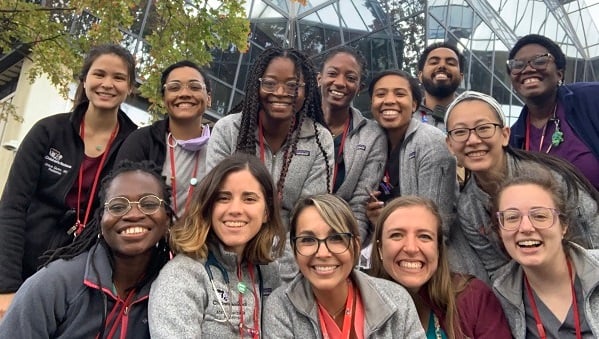GME Health Equity
Health equity is about creating a better future for children and their families.
At Children’s National Hospital, we are committed to training and maintaining a workforce that reflects the very diverse community we serve. In fact, Washington, D.C., is a majority-minority city, where over 50 percent of people living in D.C., identify as Black/African American, close to 10 percent identify as Hispanic/Latinx and 10 percent identify as LGBTQ.
Taking the population that we serve into consideration, diversity in all is paramount to assuring exceptional educational programs and high-quality patient care. We understand the need to assemble trainee cohorts that are as diverse as the population of patients we serve in our nation’s capital.
Principal Components of Our Approach
Keep Health Outcomes at the Center of Our Work
Increase Health Equity
Enhance Education
Building a Community of Practice to Help Meet Future Needs

Training A Workforce to Mirror Our Community
Our efforts to create a more diverse residency program have been recognized by the Accreditation Council for Graduate Medical Education, which honored our Pediatric Residency Program with the 2022 Barbara Ross-Lee, DO Diversity, Equity, and Inclusion Award.







